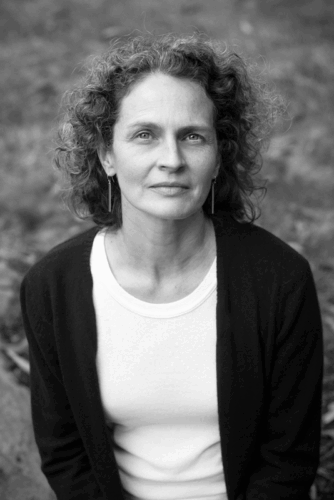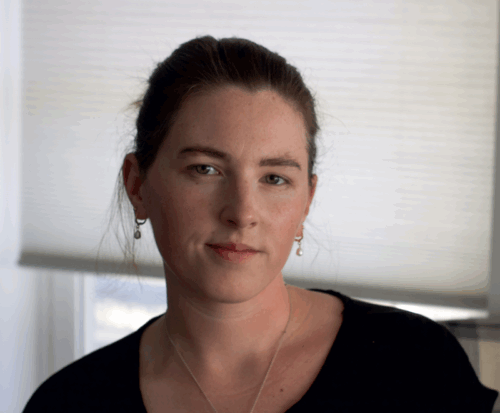Announcing Our 2025 Contest Winners
7 Minutes Read Time
Winners of the Seventeenth Annual Robert and Adele Schiff Awards
Robert Sorrell Bynum for the story “Like a Star”
chosen by Michael Griffith
Jessica Cuello for the essay “Your Life for Another”
chosen by David Lazar
A. D. Lauren-Abunassar for the poem “Three Bombardments”
chosen by Rebecca Lindenberg
Thank you to everyone who entered the contest! We really enjoyed reading your work. Bynum, Cuello, and Lauren-Abunassar will each receive a $1,000 prize, and their pieces will appear in the Spring 2025 issue of The Cincinnati Review. Read more below about the story behind the winning story, essay, and poem.
We’d like to thank Kate Jayroe, Andy Sia, and Bess Winter for their assistance during this year’s contest period. We also want to recognize all the finalists:
Amber Adams
Anthony Cardellini
S. Chaudhuri-Perelló
J. L. Chen
Drew Cohen
Stanley A. Delgado
Erin E. Edwards
Nat Falkenheim
Yong-Yu Huang
Peter Kessler
Patricia Grace King
Ryan King
Emmett Knowlton
Tena Laing
Gideon Leek
Patricia McCrystal
Weijia Pan
Sophia Scanlon
Brandon Toh
The judges named Amber Adams and Brandon Toh as honorable mentions in poetry and nonfiction, respectively, and they will be published in the Spring 2026 issue as well.
“Like a Star” by Robert Sorrell Bynum
Fiction Editor Michael Griffith: Robert Sorrell Bynum’s “Like a Star” is subtle and lovely. This is a genre that’s awfully hard to pull off: a more-or-less realistic contemporary version of the type of folktale in which some invisible force—possibly benign, possibly malignant—keeps providing for a protagonist, day after day, toward an end that can’t be guessed and with motives that can’t be fathomed. Here those motives, and the rest of the world, fade to near irrelevance as our protagonist warms to the work and to the sense of discovery in it.

Bynum on the winning story: I grew up with parents who worked in the performing arts, which meant I spent a lot of time in rehearsals after school, helping set up music stands, hanging out with ballet dancers and musicians backstage. I played music, but I never really wanted to be a professional musician. As I got older, I played less and less, and part of me started to miss the backstage world in which I’d grown up. I started “Like a Star” in this headspace, going on runs and listening to music too loudly. I realized the feeling I’d gotten playing in a band, those few moments where we looked at each other and thought we sounded so, so good, was oddly similar to the one I got on a run when I felt I could keep going, farther and faster than before. At first I thought “Like a Star” was a story about that connection. But the character that came to me was also deeply worried about losing her connection to her art. The question that I felt sat at the bottom of the story is the one everyone who does something creative has felt: Am I good enough? Maybe it says something about the mystery of process that I didn’t even think it was about writing until long after I was done.
Robert Sorrell Bynum is a bi writer who pushes the boundaries of realism while engaging in the present. He received his MFA from University of Wisconsin–Madison and has published work in Porter House Review, Philadelphia Stories, and elsewhere. Currently he lives in Chicago with his wife, where he’s working on a novel.
“Your Life for Another” by Jessica Cuello
Guest Literary Nonfiction Editor David Lazar: Jessica Cuello’s “Your Life for Another” is a rich and mature contemplation on friendship and memory, on the ways literature actively and repeatedly speaks to our experience, and, most profoundly, on redemption and the irredeemable. Cuello understands the possibilities inherent in the essay for asking questions that have no answers.

Cuello on the winning essay: I realized years ago that teaching was deeply tied to how I felt about myself. The relationship between teacher and class is probably one of the defining relationships of my life. This particular essay is also about mental illness and the end of a friendship. Nothing has broken my heart quite like the ending of my female friendships. Senior year of college, this friend and I enrolled in a seminar on Joyce’s Ulysses, and the thesis requirement in that class was the beginning of her undoing. This essay is part of a collection that investigates how teaching intersects with childhood.
Jessica Cuello’s newest book, Feral, is forthcoming from JackLeg Press in 2027. Cuello is the recipient of a 2025 Saltonstall Foundation fellowship and a 2023 NYSCA artist grant, and is poetry editor at Tahoma Literary Review. She is a public school teacher.
“Three Bombardments” by A. D. Lauren-Abunassar
Poetry Editor Rebecca Lindenberg: This is a lyrical poem of witness, and the visual elements of “Three Bombardments” highlight the ways that artifacts (especially language-as-artifacts) serve as both anchor and ephemera in individual and collective experience and understanding—the equation for what we sometimes think of as hauntings. Repetition and variation here serve to stitch memory to futurity, ancestry to identity in luminous and interesting music infused with pathos, while the syntactical play reveals a deep intelligence for both origin and mourning.

Lauren-Abunassar on the winning poem: Lately, I’ve been thinking a lot about poetry and storytelling as a form of recordkeeping and archival practice. I’ve also been thinking about what it means to write at the intersection of catastrophe and love, resistance and erasure, past and present. Always, I bring with me an urgent and unyielding awareness of my ancestry. And so working on a series of poems that incorporate photographs from family albums has been a way for me to continue writing “with,” “among,” and a part of a greater network of stories and storytellers. It’s been a way to navigate inheritance and the questions we face when the histories of the people we love become our last pieces of them. “Three Bombardments” features a photo of my Teta as a young woman. She was a woman who knew what home was, even when home could not be accessed. She was a woman who knew what loss was but who celebrated anyway. One of the last times I saw her before she died, she was dancing around her living room, singing something in Arabic, translating a few lines for me: “The woman who dances always has a secret.” Lately, when I write, I feel I am writing toward something. In this poem, I am writing toward her.
A. D. Lauren-Abunassar is a Palestinian American writer, poet, and journalist. Her work has appeared in Poetry, Narrative, Rattle, Prairie Schooner, Boulevard, and elsewhere. Her first book, Coriolis, was the winner of the 2023 Etel Adnan Poetry Prize. She is a 2025 NEA fellow in poetry.
Rebecca Lindenberg also wanted to recognize Amber Adams as the honorable mention in poetry for the poem “Under Snow,” about which she says: This poem, an elegy and remembrance for a brother killed in an avalanche, alternates between tautly managed narrative, candid examination of the experience of tragedy, and song hummed from deep in the hollows of sorrow. Smartly unadorned, this poem is still quite luminous, with its well-chosen details serving as metonym for what we come to understand is probably, finally, unsayable.
David Lazar wanted to recognize Brandon Toh as the honorable mention in literary nonfiction for the essay “Possessed by a Dying Tongue,” about which he says: Brandon Toh’s “Possessed by a Dying Tongue” essays the polylinguistic possibilities of language to determine how we think and live. A lyrical and troubled meditation on culture and selfhood, it exploits the ability of the essay to maintain complex and contradictory feelings about a subject that are not easily resolved.
To order the prizewinning issue (due out in May), check out our subscription options.
